Every Reason Ted Cruz Gives For Going Back To The Gold Standard Is Just Plain Stupid
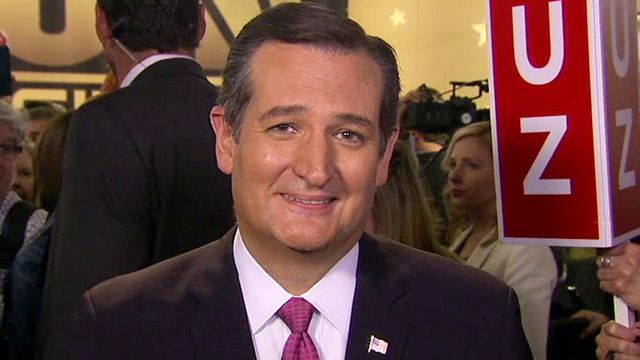
It’s finally 2016. The primaries will begin soon, and before too long the Republican nomination for president will be decided. This candidate will then run for the presidency and for the power to shape American policy. Given most of Republicans’ economic stances, this is a terrifying thought.
Several of the Republican presidential nominees are passionately calling for ridiculous economic policies that will be terrible for America and will not help its people. However, the dumbest idea comes from Ted Cruz and Mike Huckabee, who are calling for a return to the gold standard. Ben Carson, Rand Paul and Jeb Bush have also mentioned that they are open to the idea.
The theme that these candidates are pushing is that the government interferes too much with the economy, and that there would be greater economic stability if we simply tied the dollar to gold and let it be. If I had a week, I would not be able to finish explaining why this is a dumb idea, but I will try and summarize some main points here.
The conservative argument is that gold is inherently valuable, and that the dollar as “fiat money,” or money unchained to a commodity (like gold) and subject to manipulation, is not. Therefore, the idea is that the US should tie the dollar’s value to gold, rather than a “fiat value” with which the government can add or subtract value at will depending on the dollar’s circulation. Gold is inherently stable, conservatives say, whereas the dollar seems anything but stable.
But is gold really inherently stable? While gold has industrial uses in fields such as dentistry and electronics, it is still nothing more than a free-floating commodity traded on the international market. Which means that, like any other commodity, gold is still subject to the whims of supply and demand.
Historically, long before industrial uses for gold were fathomable, its worth was predominantly based solely on the perception that it looked pretty as jewelry, and that it was somewhat scarce until the era of industrial mining. However, just because gold has had some good centuries, no commodity is eternally stable in value. And like any commodity ever, this could change completely over the next hundred years, or even tomorrow. If consumers decided tomorrow that they no longer wanted to wear gold, or scientists created an even better industrial substitute for gold, the value of gold would plummet. And, if the value of the US dollar was chained to the value of gold, as gold prices fell Americans would lose their money. This is why chaining currencies to commodities is a bad idea, and the Republican presidential candidates who are pushing it are misinformed.
Meanwhile, our fiat dollar currency is legally and institutionally backed by the United States Government, arguably the most stable economic power in history. Furthermore, the US government has endowed the Federal Reserve with the authority and means to maintain the value of the US dollar. This is the exact opposite of gold, as there is no such institution to protect and preserve the value of gold. And if there were some institution to monitor and steward the price of gold, it would be no different as a currency system than our fiat dollar.
As such, the value of gold is entirely dependent on supply and demand, and if the dollar were chained to gold when demand for gold went down, we would fall into a deep depression. If an economic catastrophe like this occurred, people would accept neither gold nor dollars for business transactions because both would be worthless, and no Americans would have money anymore (think of the German hyperinflation crisis after WWI when Germans needed a wheelbarrow full of cash to buy a loaf of bread).
In contrast, the Federal Reserve ensures that the dollar has a legally accepted value, and that it will always be accepted as a form of payment for all debts. Look at a dollar bill for a visual aid of the dependability of our currency: every dollar bill states with an active caps lock, “THIS NOTE IS LEGAL TENDER FOR ALL DEBTS, PUBLIC AND PRIVATE.” Every dollar bill is also labeled with the national designation “THE UNITED STATES OF AMERICA,” and features the signatures of both the treasurer and the secretary of the treasury below it. Meanwhile, gold is just a rock we dig up from the ground that would be no different than other valueless rocks if people decided gold wasn’t cool anymore and stopped wanting it. There is no treasurer of an international gold stash promising gold’s dependability for the world economy.
So there you have it: dollars do in fact have actual inherent value, which is supported unequivocally by the strongest government in the world with the biggest economy in the world, and is carefully managed by one of the most important economic institutions in the world. This is why dollars are the world’s most commonly traded currency, the most dominant reserve currency, the official currency of multiple countries, and a de facto currency throughout much of the world, all despite being a free-floating currency subject to the whims of America’s economic performance. But, again, the US government promises that the value is real. Ironically, for their supposed passions for stability, Republicans like to hold the dollar’s security hostage, and often flirt with the idea of allowing America to default on its debts to stick it to Obama in Congressional budget negotiations… which is only beneficial for competing foreign currencies.
But let’s give gold the benefit of the doubt for a moment. Would being backed by gold be better than being backed by just the US government?
Let’s think logically about this. If linking a currency to gold were such a genius and beneficial idea for an economy, wouldn’t we maybe see a few developed countries doing this today? But none are. There is not a SINGLE country in the world that uses the gold standard. And if the US dollar is so unstable, untrustworthy, and, as some Republicans think, inherently worthless as a theoretical form of payment, why have so many foreign governments bought so many of them? Wouldn’t these countries have decided to better spend their surplus capital buying bricks of gold rather than US treasury bonds based on the dollar? The fact that foreign governments trust the American economy enough to buy, literally, trillions of dollars worth of government bonds seems to indicate that dollars are in fact more useful, valuable and maybe even more stable than gold.
Republicans like Ted Cruz may be disappointed to know that the world does, in fact, trust the dollar, so much that the stability of the international market relies on the dollar. Still surprised that America’s government so responsibly maintains its currency? And do you see why it is important that the government takes this responsibility seriously? Fortunately, the dollar’s value has been protected by the government since FDR took the US off of the gold standard in 1933 because so much money had been lost in the Depression that the public began to hoard their gold, which only further exacerbated the nation’s economic woes. In the 1970s, Richard Nixon (a Republican, mind you) fully abandoned the gold standard by no longer allowing dollars to be converted into gold. The economic abandonment of the gold standard was a bipartisan effort.
So, as it turns out, dollars do have inherent value and are actually backed by something more important than a random pretty-looking rock that people generally agree is nice to wear on their fingers and ears. But this does not necessarily mean that tying money to gold would be bad or wouldn’t also be a useful economic policy. So let’s investigate how the gold standard affected the economy when the gold standard was in place.
In the late 1800s and early 1900s the US and most of the developed world at the time did have their currencies tied to gold. Instead of being stable economic utopias, though, gold standard countries suffered from chronic recessions and depressions, with major ones affecting America in 1873, 1883, 1890, 1893, 1907 and 1929. Of course, while economists agree that the gold standard did not necessarily cause these recessions and depressions, they are very much in agreement that the gold standard made it next to impossible to fix the economic problems. The rigidity of the gold standard consequently perpetuated downturns for periods of time longer than they needed to be. Though the gold standard does not directly lead to recessions, it undoubtedly makes them worse.
Having our currency tied to gold and saying that for every dollar that is printed there has to be some certain amount of gold to support that individual dollar means that the government cannot print money or manipulate the currency’s value to help alleviate economic downturns. While Republicans think this is a good thing, the government’s lost ability to manipulate our currency would be terrible for the economy and the American people at large. And, besides all that, some major changes have occurred since 1933 that would make the gold standard less appropriate today than it was back then.
First of all, when we were committed to the gold standard previously there was a fraction of the people around and a significantly smaller amount of dollars in circulation. Second of all, there’s really not that much above ground gold that is capable of being used for dollar security. If America went back to the gold standard we would have to buy up most of the world’s gold supply to support the sheer volume of dollars currently printed in the world today, or we would have to drastically cut back and deflate the dollar, thus destroying the notion that the gold standard would make the dollar stable.
Another option would be for the government to raise the dollar price of gold to some ridiculously high rate, for example, $10,000 per ounce of gold. But then, suddenly, gold would become just as much of a fiat currency as our dollar currently is, and the value of the dollar would become even more arbitrary because it would be valued according to a rock with an artificially absurd price.
This would also have disastrous repercussions for our economy as hundreds of thousands of newly inspired gold prospectors would quit their jobs to go looking for that ounce of gold worth three or four months’ worth of pay. It would likely turn into the biggest gold rush in history, and could very well cripple our post-Great Recession economic recovery as people would abandon the economy’s steady progress in search of getting rich quick by gold. And ironically, the more gold these prospectors find, the less valuable our gold-tied dollars would become, as per supply and demand.
Aside from the colossal amount of gold America would have to buy in order to support a potential gold standard, the rate of America’s growth and its subsequent continuous need for more dollars would mean that the gold industry would have to drastically increase production. And since gold mining is relatively tedious, quite expensive and harmful to the environment, it would be physically unable to support a quickly growing American economy. Setting up a new, contemporary gold standard would dramatically stifle American growth.
Today, gold is worth about $1,100 dollars an ounce. Garrick Gold, the world’s largest miner of gold, says that it costs around $560 to $610 to produce an ounce of gold, or half the actual value of the gold itself. Furthermore, gold production hurts the environment using a process called gold cyanidation, which is basically what it sounds like. Gold mining also creates water pollution, open-pit holes in the ground and seventy tons of mine waste per ounce of gold. Someone, please tell Ted Cruz that his beloved new gold standard clearly would not be worth the effort!
Despite these insane gold production challenges, however, the gold standard still has a plethora of economic flaws. If the dollar were to be pegged to gold the government would be unable to manipulate the supply outside of what it could physically hold on to, which would hurt the American people if banks lost all their money and even the government was unable to intervene in a free-falling economy. Republicans argue that the government should not intervene, but ignore the reality that the massive stimulus packages put together by both Presidents George W. Bush and Barack Obama are what stabilized our 2008/2009 free-fall economy. These would not have been possible in a gold standard economy because this money would have to be backed by a physical amount of gold. Where could the US government have found the immediately needed $2.8 trillion worth of gold to save the economy?
In contrast with commodity-based economics, our fiat currency gives us many complex mechanisms in which the government can intervene to boost the economy. For instance, the government is able to raise and lower interest rates to help business, and can print money at will in order to inject it into the economy. However, the main question superseding everything else is why would a government not want to intervene to boost its economy?
We live in a democratic government in which we elect people among us to serve as stewards of our nation as a whole, the economy included. The whole point of government, whether local or national, is to actively serve and protect the people. Republicans and Democrats alike agree with this philosophy on subjects as varied as foreign policy, property rights, education, military protection, etc., so it is strange that on economic matters Republicans want to blindfold the captain of the ship while floating on the ever-shaky waters of the international economic system.
Why would a political party in a democratically elected government purposely sabotage its own ability to help the people in times of economic duress? And the most baffling part is that this policy of economic inaction ruins Republicans’ chances at reelection! FDR won a landslide victory in 1932 simply by saying that the government should work toward helping people. Republican President Herbert Hoover, in contrast, did little to fight the Great Depression beyond watching Hoovervilles spring up and tarnish his legacy. Two generations later Barack Obama won another Democratic electoral landslide in 2008 because the America people blamed Republicans AGAIN for causing and continuing the Great Recession. Ideology aside, it is historically bad politics for Republicans to take a hands-off approach to the economy, and it has burned them TWICE.
Even worse for Republican political strategy, a study of the 2016 electoral map suggests that Democrats are again going to be dominating national politics for a generation, just like the era between 1932 and 1968 when Dwight Eisenhower was the only Republican president between four Democratic presidencies. Laissez-faire economic policies, such as a return to the gold standard, inevitably come back to haunt Republicans.
A gold standard economy would also come back to haunt America’s national security. Perhaps the most important reason why going back to the gold standard is a stupid idea is because America would be the ONLY country going back to gold. If every other country decided to join us in going back to gold, every country would be linked together by the price of gold and would have similar interests in keeping the gold system as a whole stable and efficient. But by being the ONLY country using gold, America would be dramatically risking its national security since any country could potentially damage the American economy simply by buying or selling gold and messing with the value of our currency. Islamic terrorists could effectively attack our economy by transitioning into a large-scale mining corporation, or by simply buying the valuably finite gold resources America would need desperately to legitimize a gold-backed dollar.
While I have hopefully listed a number of reasons to convince you why the gold standard is a stupid idea, perhaps the simple fact that pretty much all expert economists agree will help reinforce this claim. The gold standard is a bad idea for modern economies, and there is a reason every single country on Earth has abandoned it.
Pass it on, this shit’s important!
Image via Fox News

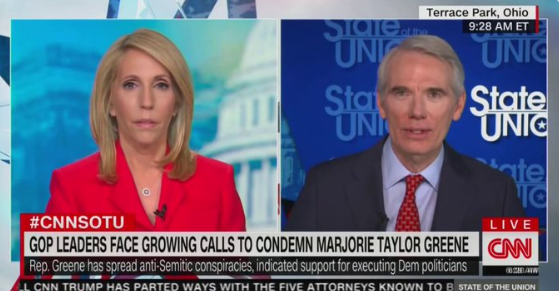

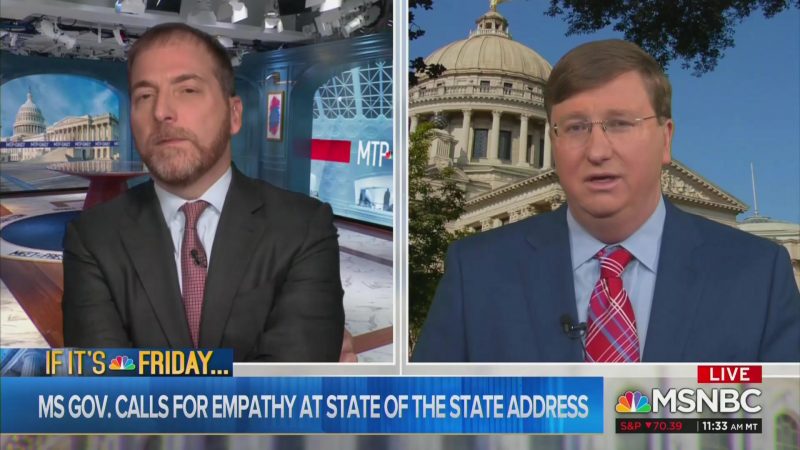
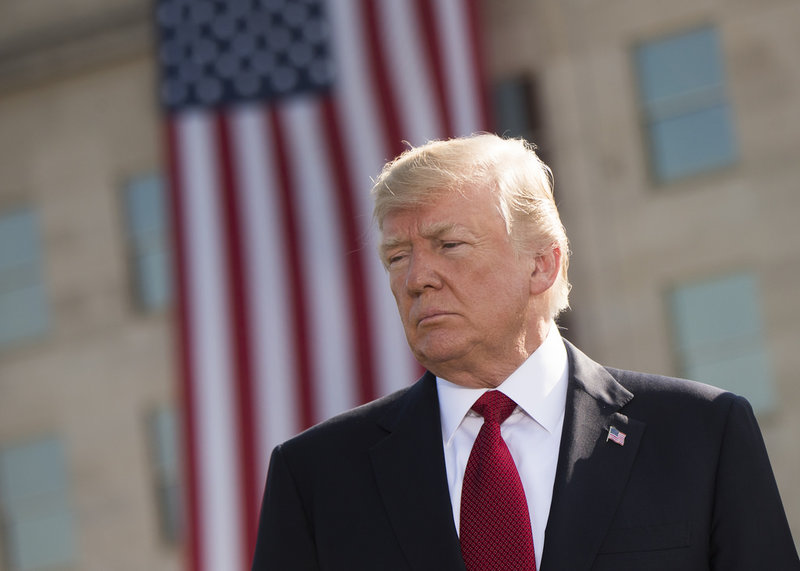

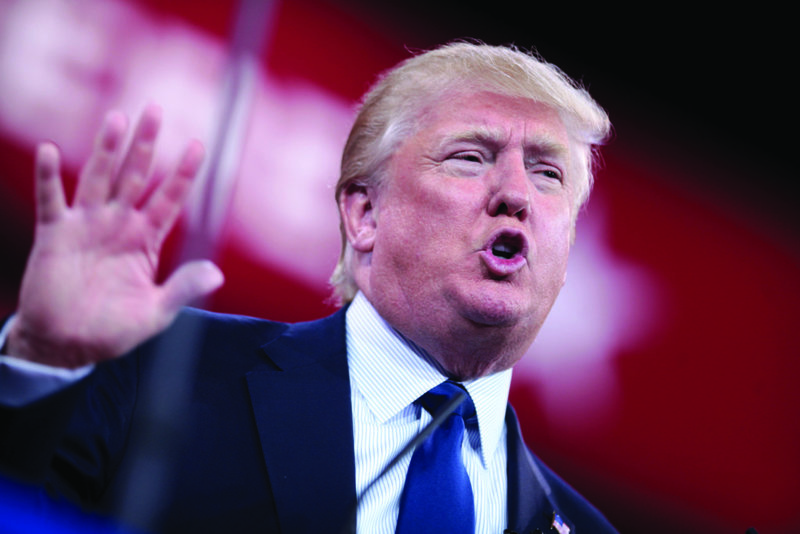
The author of this article has been brain washed.
Do you think the gold standard is a good idea??